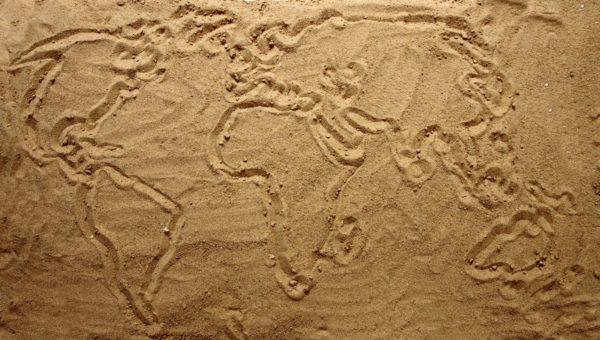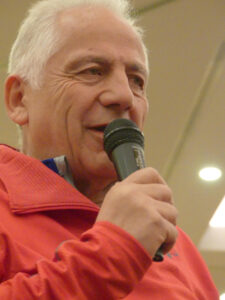
CFOR Series: Facilitating our Future
Facilitators include:
Neus Andreu Monsech, Innocent Musore, Maaianne Knuth, Mvuselelo Huni and Undine Whande,
Raggi Kotak and Sheila Menon, Paul Callery,
Paula Boyle and Padraig Cotter, Jay Revar, Anup Karia and Shilpa Shah
(bios here)
Hosted by:
Arlene Audergon (bio here)
ZOOM Dates: 4/10, 11/10, 25/10, 8/11, 22/11, 6/12 and 13/12/2021
Time: 2-5 pm UK time (Please find your own time zone)
We (Jean-Claude and Arlene) began planning the ‘Facilitating our Future’ Series in September 2020. We had a sense of joy as we often had over the years, when working with a simple, yet far-reaching idea that felt right to us.
When Jean-Claude passed away, some of us from CFOR and Processwork UK discussed what we would do about this Series. It was scheduled to start early in 2021. We decided to go forward, but to postpone until October.
Even on the day JC passed away, he was talking passionately and clearly about the importance of continuing to gather and study… When the Series begins, it will be close to a year since Jean-Claude passed.
The ‘Facilitating our Future’ Series focuses on the importance of processing our history and its current impact, in order to increase our personal and collective awareness, so that we might facilitate our future.
This is the basic idea which underpins all of our work. We are all too aware that when there are no opportunities to process this history and its ongoing impact, we are activated and manipulated into polarisations and violent conflict. But, this is an opportunity. Where we do have personal and collective awareness or consciousness, there is a chance to ‘stop the world’, to not just fall into the replay of these polarisations, and into the nightmare of history. This is the link between our personal and collective awareness and consciousness. This is where facilitation, psychology, spirituality and social action meet.
The Series
The idea is to learn from the rich experiences of our colleagues, friends and students, who will share their practice and insights in relation to a range of essential themes, and from different parts of the world.
The idea is to foster learning and intense study among us – to share with one another, with students, practitioners, and interested participants.
These sessions will give us an opportunity to learn about an enormous range of historic and current issues, while focusing on shared dynamics of accountability and collective trauma and the role of community facilitation.
This will not only be a rich feast of learning about history and current dynamics concerning different themes and places. It is also a chance to learn about how ‘worldwork’ and ‘processwork’ methodology supports personal and collective awareness needed to interrupt cycles of violence, and to find creative pathways to our future. It also makes for a juicy way to study process dynamics, and process interventions, in relation to a wide range of different contexts.
First we had a great long list of themes and colleagues we wanted to invite.
Due to time limits, we needed to choose only a few. But, we have the idea that if this Series ends up being a good learning experience, we can extend it into a longer term project, and include more themes and places over time.
Each theme is also very wide. Each facilitator or facilitation team will choose how they would like to focus. The facilitators and teams are also encouraged to link their work in this series with their ongoing projects and future dreams.
As we reached out to invite some of our colleagues, friends and students about leading a session, we received very strong and immediate feedback. We are touched by the relationships, team work and shared vision that underpins our learning together.
Themes and Facilitators
October 4 2021: Neus Andreu Monsech
Intro to the series: Arlene Audergon
Catalonia and Spain – Processing the polarisations of history, from colonialism, to Franco, to modern day
October 11: Innocent Musore
Rwanda and the Great Lakes – the 1994 genocide against Tutsi, and processes of reconciliation
October 25: Raggi Kotak and Sheila Menon
History and legacy of UK colonialism in relation to issues of racism, asylum and migration
November 8: Maaiane Knuth, Mvuselelo Huni and Undine Whande
Zimbabwe – Processing history, and the fabric of community
November 22: Paul Callery, Paula Boyle, Padraig Cotter
Ireland, England, and Northern Ireland
December 6: Jay Revar, Anup Karia and Shilpa Shah
Caste in India and the Diaspora community
December 13 2021: Arlene Audergon with all presenters and participants
Gathering our learning
Closing and future
Find out more about the presenters here.
The Format
Each session will be led by a different team, including partners, colleagues, students and friends of CFOR and Processwork UK, who will share with us about the need and the possibility of facilitating history, its legacy and ongoing impact, and what it means to facilitate our future.
The sessions will include a variety of formats, including presentation, inner work, group interaction, reflection and discussion. We will also provide various resources (links to articles, documentaries, websites etc.), to support your learning. Arlene Audergon will be there and take part in all the sessions. The first session will include a brief introduction to the Series. The last session will be an opportunity for all of us to gather our learning.
Who is the Series for?
The Series is for:
- Interested participants and facilitators who want to increase their learning about Processwork and Worldwork methodology, and their contribution to communities.
- Interested participants from the fields of conflict resolution, transitional justice and peace-building.
- Processwork UK Diploma students (Students enrolled in the Processwork UK Diploma programme do not need to register separately)
How to register
Please email us on admin@cfor.info to briefly introduce yourself and your interest in the course. (A couple sentences or a paragraph)
We will send you a registration link on Eventbrite. (If you don’t have an Eventbrite account, you will need to register for that as well. It is pretty straightforward and quick.)
Participation is limited. Early registration is recommended. We’ll also open a waiting list.
Registering with Eventbrite should make things easier for all. But, if you have difficulty, please contact us on admin@cfor.info
On Eventbrite:
You will have a choice to select the appropriate fee. Fees are inclusive of the Eventbrite overhead costs.
1) SERIES FEE: £300
ADDITIONAL DONATION:
In addition to the Series Fee, we invite participants to donate an additional amount, if you are able and would like to. All donations will go towards covering the expenses of the Economy Fee. Thank you!
2) ECONOMY FEE: PAY WHAT YOU CAN
If you come from a country or economy that makes the Series Fee unrealistic for you, please pay an appropriate amount.
Thanks for your thoughtfulness and care in selecting the appropriate fee.
You will receive a Zoom link from Eventbrite upon registration.
The sessions will be recorded. If you need, the recording will be accessible to participants for one week after each session.
PLEASE NOTE
If you are enrolled as a Processwork UK Diploma student, this Series is included, and there is no need to register with CFOR. You will need to confirm your participation with Richard, administrator of Processwork UK.
We are looking forward to this new Series, and to meeting and learning together!
